3 Essential Strategies for Making a Budget that Works
This website may earn commissions from purchases made through links in this post.
Successful budgeters don’t have more discipline when it comes to saving money, they just have better strategies. In this episode, I share three key strategies for making a budget that works.
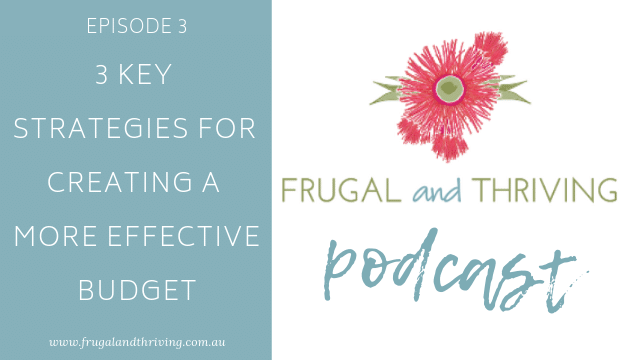
In this episode, I’m going to share 3 key strategies for creating a budget that works.
You can listen to the podcast below or continue reading the article/transcript. And don’t forget, you can also subscribe in your favourite podcast app.
Disclaimer: This is general information only. In this blog, I share my savings and budget planning and what works for us. You should always consult a qualified financial expert when making money decisions to tailor plans to suit your circumstances.
Have you ever created a budget? How did you go? Did you hit your savings targets OR did unexpected expenses keep cropping up that made it impossible to stick to your budget?
If you can relate to the second scenario, then I want to assure you that you’re not alone. Studies suggest that less than 30% of us create a budget and of those who do, very few of us actually stick to it.
The problem isn’t that we don’t have enough discipline, which is what we can sometimes beat ourselves up about.
The truth is, successful budgeters aren’t more disciplined than the rest of us. They don’t have more willpower!
What successful budgeters DO have are better strategies and more effective systems.
It’s a little bit like when you go on a diet, and you’re told to clean out your kitchen of junk food and replace it with healthy food so that you have no choice but to eat healthily.
The same principle applies when it comes to successful budgeting. Engineer your environment for success and take willpower entirely out of the equation and then you can’t help but build your savings.
I’m going to share three strategies that you can implement today that will help you create a budget that works. They will only take you five minutes but that five minutes will have a huge impact on how you build your savings.
These are strategies I’ve been using for nearly two decades, but I didn’t make them up; they are strategies that have been around for generations. I’ve just put a modern twist on them.
So let’s get started with the first strategy. And that is…to pay yourself first.
Strategy #1: Pay Yourself First
Here’s the equation for a standard budget:
income – expenses = savings.
Your savings are what’s leftover after you pay all of your expenses.
So here’s a super simple example: just say you get paid $100 each week, and your expenses add up to $90, then you have $10 left to put towards your savings.
On the face of it, this way to budget makes complete sense, right? It’s a completely logical way to work out your finances. It’s not like you can just decide not to pay your bills!
Here’s the problem.
Humans are not as logical as we like to think we are. We all have a tendency to spend first on impulse and then rationalise to ourselves our spending afterwards. In fact, behavioural economists study just how irrational we are when it comes to money. And marketing is a whole industry based on emotional spending.
So, our budget looks good on paper but in the real world, what really happens is we think things like, “I’m really hungry, I don’t feel like cooking, you know, I’ve got some spare money, I’ll just buy takeaway and I’ll worry about saving next week.”
Does that sound familiar?
So what’s the solution?
Successful budgeters don’t rely on willpower to talk themselves out of impulse spending. Instead, they turn the traditional budgeting equation around. Instead of income less expenses equals savings, they do:
income – savings = expenses
In other words, they save first and then spend what’s left over.
If there is only one budgeting tactic you ever do, this is it: turn your budget around so that savings come first. So that you pay YOURSELF first.
What if the budget is too tight to pay yourself first?
Ok, at this point you might be thinking: “that’s all very well and good, but money is super tight at the moment and there’s no way I’m going to be able to prioritise savings.”
If this is you, I want you to stick with me for a moment, because I’m going to suggest you try it anyway, even if you’re just saving one dollar a week.
One dollar a week isn’t going to make much of an impact so what’s the point, right? Is it even worth it?
But what saving every week does, even if it’s only a small amount, is it builds the habit. Like strengthening a muscle, the more you do it, the stronger the habit becomes. And when your income increases, you already have a strong savings habit in place. All you have to do then is adjust the amount.
But if you haven’t established that habit, you’re still relying on willpower and discipline. You have more money to spend OR you have more money to save, depending on the habits you’ve already established.
But there’s another reason why paying yourself first and saving every week is a powerful strategy, even if you only have a dollar or two to save.
Our habits reinforce our self-identity. What we do and how we act says a lot about the kind of person we are, especially to ourselves.
I’ll tell you a little story: for years I’ve known I should exercise more, but I don’t. And I’ve often said out loud to other people, “I’m not an exercise person, I’m more of a book reading kind of person.”
My self-identity was very explicitly of someone who doesn’t exercise. And guess what? I never exercised! Not surprising, right?
This year I joined a gym with the one goal of just turning up. If I just do 10 minutes on the exercise bike and then leave, I count that as a win.
Why?
Because this year I’m focussing on building a new habit. Every time I go to the gym, that’s irrefutable evidence that I AM in fact someone who exercises.
I’m slowly reshaping my self-identity and that will have a positive flow-on effect on my health. And when the time is right, my goals will evolve to doing more than just showing up.
(Incidentally, once you show up and get going you usually do a lot more than just 10 minutes on the exercise bike).
Just showing up is a massive component of success.
So back to saving money.
When we habitually save money, we are sending the message to ourselves that: “I’m a person who saves. I’m a person who is good with money.” That habit forms and reinforces our self-identity as a saver and then our self-identity (the way we think of ourselves) shapes our behaviours in a positive feedback loop.
One dollar a week doesn’t have a big impact on our immediate circumstances but it does have a big impact on OURSELVES and that positive impact will domino through our lives.
If you’re interested in learning more about habits then James Clear’s book Atomic Habits is a great read.
How do you work out how much to save?
The question that might come up is, how do you work out how much you can afford to save if you haven’t done a budget. Paying yourself first is a nice idea, but my electricity company might feel otherwise when it comes to paying the bill.
Don’t let doing up a budget become a barrier to getting started!
Focus on getting it done, not getting it perfect. As a perfectionist, it hurts me to say that, but I’ve learned over the years that good things always happen when I don’t wait until all the stars align before I take action.
Start saving today with any amount you feel comfortable with, even if it’s just a couple of dollars and then adjust it as you need to. By the time you get around to working out a budget, you might already have several weeks’ worth of savings because you took action today.
Read further: When to Track Your Expenses and When Not To
That’s strategy number one. The second strategy builds on the first and makes it even easier to pay yourself first, and that’s the power of automation.
Strategy #2: Automate Your Savings
The cool thing about modern banking is that you can schedule payments in advance and put those payments on repeat so you don’t have to worry about them.
Remember when I said that successful budgeters don’t rely on willpower? Automating your savings eliminates willpower one hundred per cent. Your savings are on autopilot without you ever having to have that “I really should spend this money” conversation in your head.
Here’s how automating your savings works.
It’s payday. Your pay hits your transaction account. Then on the same day, money is automatically transferred into a high-interest savings account because you’ve already set up that transfer to happen and you’ve set it to repeat.
BOOM.
Savings done before you’re even out of bed.
This takes less than five minutes to set up using online banking. You can even do it using your phone’s banking app right now while you’re listening and get on top of your savings before this podcast episode is even finished.
If you don’t have a savings account already, again, this takes only a few minutes to apply online. Here’s what to consider when looking for a savings account.
- No fees. You don’t want fees eating away at your savings.
- A higher interest rate than your transaction account. Although that doesn’t mean a lot at today’s interest rates, never the less, that’s what to look for.
- Ideally no EFTPOS card. You don’t want easy access to these savings. This comes back again to not relying on willpower to build your savings. When the impulse to spend money hits, and it will because it happens to all of us, you can’t act on it, because your savings are safely locked away.
So now that you’ve got your savings on track, what are these savings for, anyway?
Well, there are lots of options, of course, you can save up for whatever is your heart’s desire. But there is a third strategy for budgeting success that I want to share and that is using your savings to build an emergency fund.
Strategy #3: Build an Emergency Fund
What is an emergency fund?
That’s your backup savings for when the proverbial poo hits the fan. It’s an amount that covers everyday money emergencies like the car breaking down or the fridge blowing up or the teenager needing a new laptop for school. It’s your peace of mind that stops you from sliding too far when these inevitable expenses crop up.
How much should you aim to save for your emergency fund?
A thousand dollars is a nice round number that covers many of the everyday emergencies like the ones I just mentioned, but of course, you do you. Set a goal that feels achievable and right for your circumstances.
You’ve already set your savings on autopilot, so you don’t need to worry about building your emergency fund, but if you want to grow it quickly and get on to saving for more fun things, here are some tips.
The first is to chunk it down. Saving $10 – ten times – is easier than saving $100. And it’s also easier to come up with ways to save just $10. A couple of dollars on the groceries, some spare change into a jar, getting a discount on the petrol…these little savings quickly add up to $10. And each $10 adds up to $100.
The important thing to remember is that every time you save money on anything transfer that money to your savings account so those savings don’t get eaten up on something else.
Another option to give your emergency fund a quick boost is to look around and see if you have any clutter you can sell. A garage sale can be a great way to clear some space and make a little extra money to give your savings a boost.
So there are three key strategies for making a budget that works.
In this episode I shared how successful budgeters don’t have more willpower than the rest of us, they just have better systems, and I shared a five-minute strategy to automate your savings so that you have a backup for when unexpected expenses crop up.
I hope you found this episode useful. In the next episode I’m going to talk about one other aspect of successful budgeting that usually gets totally forgotten, but without knowing about it, sticking to a budget and keeping your expenses down, is impossible.
Resources Mentioned in this Episode
Subscribe to The Podcast
Get the latest episodes when they go live. Subscribe in your favourite podcast app or using the buttons below:




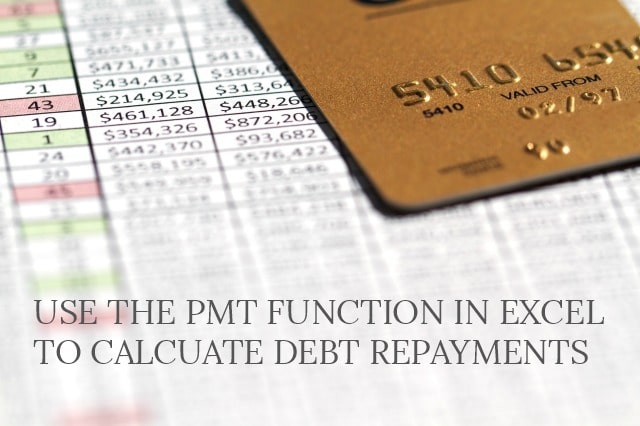
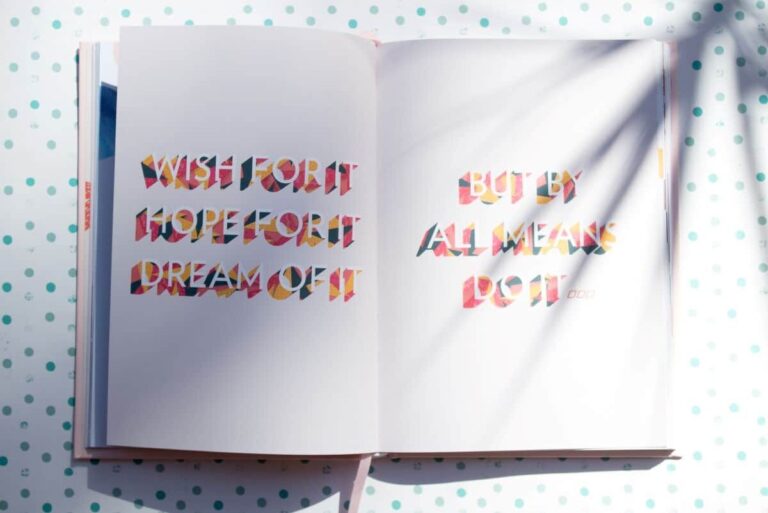
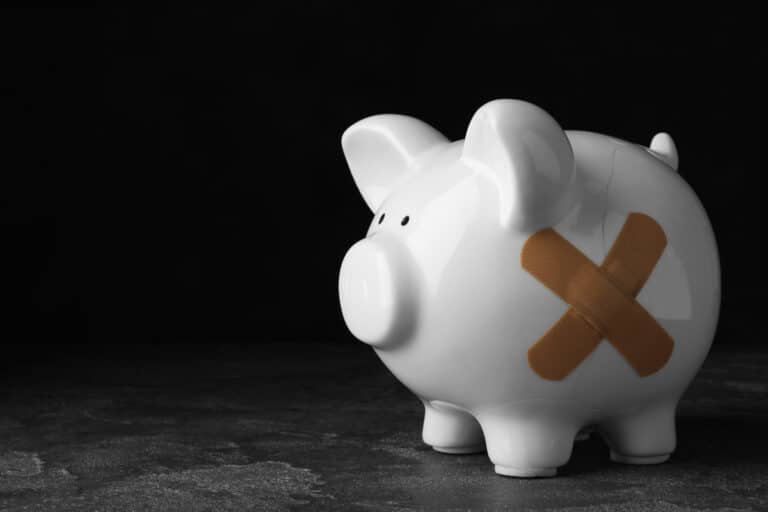

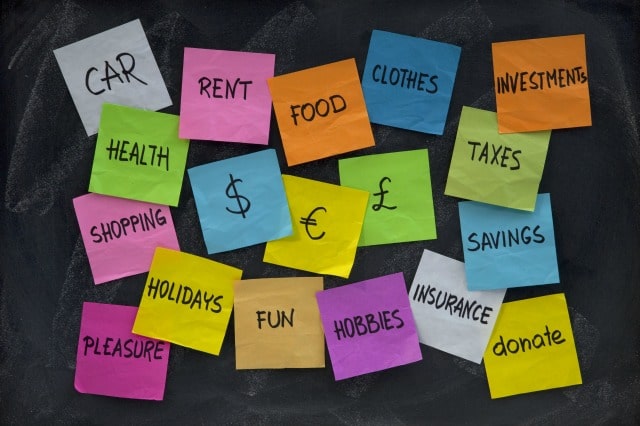
Great podcast! Thank you.
Thanks Gail, glad you liked it. ☺️
Hi Melissa
Another concise and thought provoking post. I am finding these podcasts are reigniting my will to focus on my goals. Thank you.
Thanks Bernie. :)